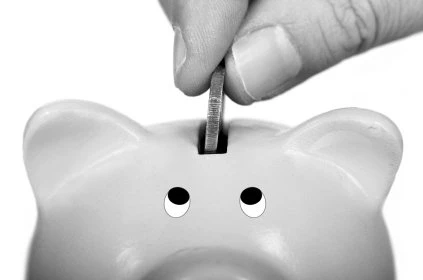 If you’re thinking about filing Chapter 7 bankruptcy, no doubt you’re asking the same question everyone else does: What happens after filing Chapter 7? The answer depends on a variety of things — not least the type of debt you’re able to discharge, and what you do discharge.
If you’re thinking about filing Chapter 7 bankruptcy, no doubt you’re asking the same question everyone else does: What happens after filing Chapter 7? The answer depends on a variety of things — not least the type of debt you’re able to discharge, and what you do discharge.
In this article, we’ll answer that question for Minnesota, starting with what might be the most important determiner: What you can’t discharge. To learn more about what happens after filing Chapter 7, contact Gregory J. Wald, Attorney at Law today.
What Debts Does Chapter 7 Bankruptcy NOT Discharge?
Unfortunately, while you can discharge most debt, there are some significant exceptions:
- Student loans funded by the government.
- Some tax debts and most federal tax liens.
- Child and spousal support (alimony).
- Fines for breaking the law.
- Debts deriving from willful and malicious property damage
- Personal injury or fines/settlements due to car accidents.
- Co-op fees for housing.
- A few tax-advantaged retirement plans
- Divorce/separation property settlements.
But even here there are a few exceptions. Ask your lawyer what you may be eligible for.
Can Chapter 7 Bankruptcy Discharge My Taxes?
Sometimes, the court will let you discharge tax debt, but only if you meet all these specifications:
- Income taxes only. You can’t discharge payroll taxes or penalties for tax fraud.
- You filed your tax returns.
- The debt is older than three years.
- You didn’t deliberately try to evade your taxes.
- You did not commit fraud.
- The IRS assessed the debt 240 days or more before you filed for bankruptcy, OR has not yet assessed your tax debt.
Can Chapter 7 Discharge Private Student Loans?
Usually, after filing Chapter 7 you still need to pay student loan debt — unless doing so would cause you and your family undue hardship. For example, if you’re permanently disabled, you may be able to discharge your loan debt.
Will the IRS Audit Me After Bankruptcy?
Probably not, since no law requires it. And the IRS really doesn’t have time to audit everyone who files bankruptcy (at least half a million annually and rising). The IRS tends to be more interested in tax evaders and non-filers. That said, you may as well dig out your files and tax returns for the last six years. If you’ve lost copies of those returns, you can order them from the IRS for a fee. They you’ll be ready for the IRS, no matter what happens after filing Chapter 7.
How Long Will My Bankruptcy Stay on My Credit Reports?
Besides the debts not discharged, this is probably the most important thing you need to know about what happens after filing Chapter 7. But many people forget to ask. Worse, they assume they have a completely fresh start as soon as the bankruptcy clears.
Not so. The credit bureaus will keep an eye on you for 10 years. You may find it hard to get a mortgage or car loan during that time. You can, however, begin to rebuild your credit, which is one of our specialties.
First of all, clean up your credit report with a Request for Reinvestigation form. This removes old debts that never “fell off” the report after you repaid or discharged them, including any from before the bankruptcy. Make sure all the other information on the reports is accurate, especially if the credit bureau insists something isn’t when you know better. That may require you to contact one or more creditors for proof in writing that you have, in fact, settled the debts.
Next, you can improve your credit score by paying all your new bills (including utilities) on time, and by acquiring a secured credit card you then pay in full and on time every month.
Learn More About What Happens After Filing Chapter 7 Bankruptcy
Maybe you’re still thinking about filing Chapter 7. Or maybe you’ve already filed and you’re wondering, “Now what?” Either way, contact Gregory J. Wald, Attorney at Law to arrange a free consultation. Bankruptcy is stressful enough; looking over your shoulder wondering what might happen next just makes it worse. Call us today.


